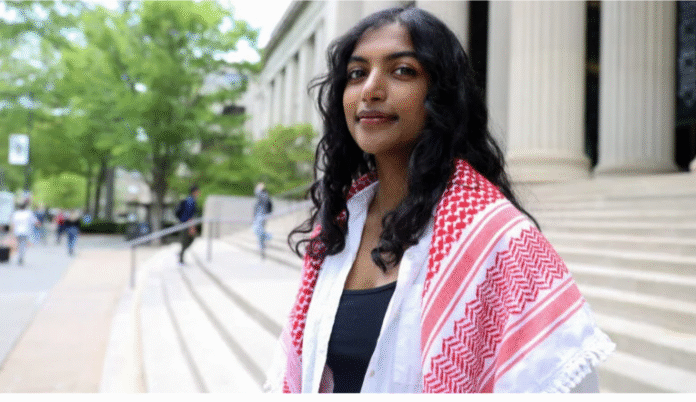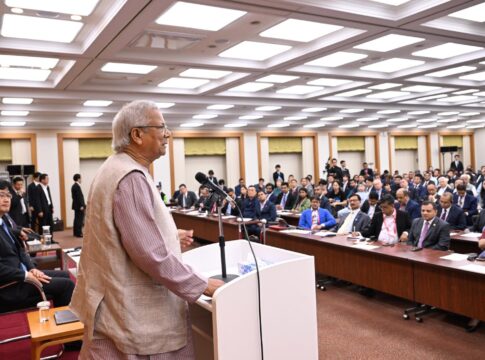MIT Class President Barred from Graduation Over Pro-Palestinian Speech — Sparks U.S. Campus Free Speech Debate:
📍 Cambridge, Massachusetts – May 31, 2025
🖋️ Reported by the Finix News International Desk
In a dramatic turn of events at one of the world’s most prestigious universities, Massachusetts Institute of Technology (MIT) banned its class president, Megha Vemuri, from the undergraduate commencement ceremony on Friday, May 30, 2025. The decision came after Vemuri delivered a speech expressing solidarity with Palestinians and denouncing MIT’s affiliations with Israeli military and defense institutions.

🔴 What Happened: The Speech That Sparked It All:-
During the OneMIT Commencement Ceremony, a campus-wide event held a day before the main graduation, Vemuri addressed hundreds of students and faculty. She delivered unscripted remarks that included this line:
“We are watching Israel try to wipe Palestine off the face of the Earth, and it’s a shame that MIT is a part of it.”
She went on to criticize the university’s financial and research ties with weapons manufacturers and defense firms linked to the Israeli military. Her speech, though met with applause by some in attendance, drew immediate concern from MIT administrators, who said it violated the terms of her speaking approval.
🚫 Graduation Day Ban:
Hours before the official graduation ceremony, Vemuri received an email from Chancellor Melissa Nobles, informing her that she and her family were barred from attending. She was also banned from campus for most of the day, with MIT citing a breach of guidelines on “time, place, and manner” of speech.
The action sparked outrage from students and civil liberties advocates, with many calling the move a clear act of censorship.
🗣️ Campus Erupts: Protest at Commencement:-
At the main graduation on Friday, dozens of graduates and attendees staged a peaceful protest, interrupting Chancellor Nobles’ commencement address with chants of:
“Let her speak!” and “Free Palestine!”
Nobles momentarily paused and responded:
“I respect that you have a message to send, but this is not the time or place. Today is about our graduates and their families.”
Despite the protests, the ceremony proceeded without further disruptions. However, the moment quickly drew international attention and headlines from outlets across the U.S., Europe, and South Asia.
🌍 Broader Implications: Free Speech and Global Solidarity:
The incident at MIT is the latest in a wave of student-led movements across U.S. campuses advocating for Palestinian rights, particularly since the escalation of violence in Gaza in 2024–2025. Dozens of universities have seen protests, sit-ins, and debates over institutional investments in companies supplying arms to Israel.
At the heart of this debate lies a question many universities are now being forced to confront:
Where is the line between academic expression and institutional decorum?
Civil liberties groups such as the ACLU have criticized MIT’s response, warning that it may set a dangerous precedent for how student dissent is handled on politically sensitive topics.
🧾 MIT’s Official Position:
In its response, MIT claimed that while it respects free speech, Vemuri had violated the agreed-upon script and used a university-sponsored event for personal political advocacy. The administration reiterated that speaking at commencement is an “earned privilege,” not an absolute right.
MIT has not confirmed whether further disciplinary action will be taken.
👩🎓 Who is Megha Vemuri?
Megha Vemuri, the student at the center of this controversy, is a first-generation Indian-American scholar who has been deeply involved in campus activism and global human rights issues. She is also a published researcher in computational systems and was elected unanimously as class president for her leadership during the pandemic-era transitions.
Supporters hail her as a principled voice for justice; critics say she politicized what should have been a moment of unity.



